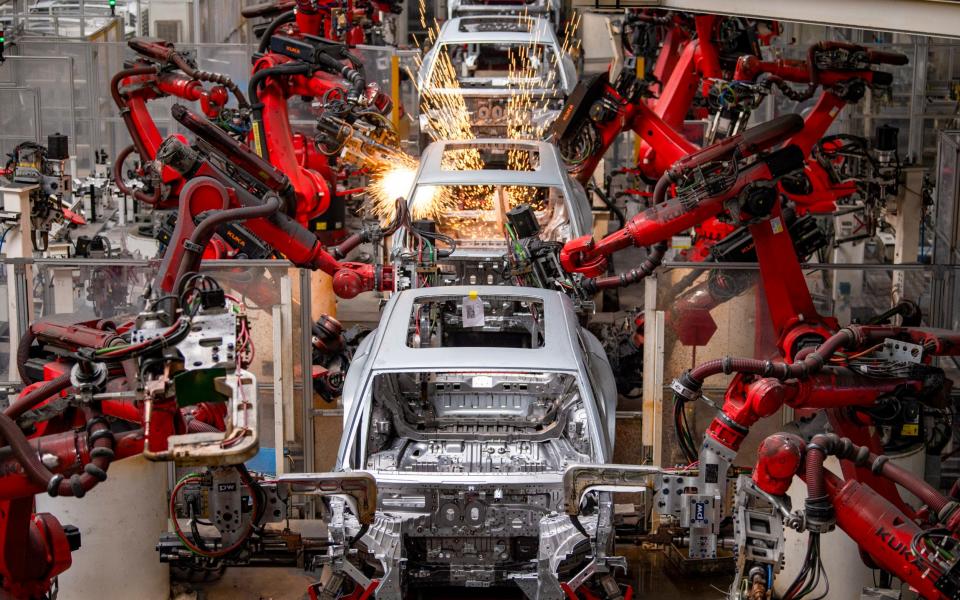Stellantis, the owner of brands including Vauxhall and Peugeot, has bought a 21pc stake in a Chinese electric vehicle company to benefit from what its chief executive called the “Chinese offensive”.
The European car maker has agreed to invest €1.5bn (£1.3bn) in Hangzhou-headquartered Leapmotor, an eight-year old electric vehicle manufacturer.
The deal comes months after Stellantis chief Carlos Tavares warned of an “invasion” of cheap Chinese cars into Europe and predicted a “terrible fight” between domestic manufacturers and Asian rivals.
Mr Tavares told reporters on Thursday: “The Chinese offensive is visible everywhere.”
However, he said the Leapmotor deal meant “we can be benefiting from this Chinese offensive, rather than being a victim”.
Chinese manufacturers have been ramping up exports to Europe in order to boost sales as the local economy slows.
Electric vehicles are much cheaper than European competitors because they benefit from state subsidies and a rich supply of locally made batteries.
Brussels launched an investigation into Chinese EV imports last month, with European Commission chief Ursula von der Leyen claiming prices were “kept artificially low by huge state subsidies”.
As well as a 21pc stake in Leapmotor, Stellantis is forming a joint venture that will allow it to build and sell the brand’s cars elsewhere in the world.
Mr Tavares denied the venture would turn Stellantis into a “Trojan Horse” for Chinese cars to break into Europe.
The deal was announced as Mercedes has said electric car makers faced a “brutal” market, with competitors slashing their prices and wealthy customers tightening their belts.
Finance chief Harald Wilhelm said the current market was “not healthy and sustainable” as he unveiled squeezed profitability at the German car maker.
The company’s profit margin fell from 14.5pc to 12.4pc after it was forced to cut prices to keep up with rivals and the cost of wages and raw materials stayed high.
The average selling price of a Mercedes has fallen from €75,400 (£65,680) to €74,600 over the last 12 months.
Mercedes is under pressure to lower prices after competitors including Elon Musk’s Tesla kicked off a price war.
It has created a “brutal” market for battery-powered models, Mr Wilhelm said.
Separately, Volkwagen said it would deepen cost cuts as demand for its cars falls in China, its biggest market, and Europe.
Volkswagen said it would find more areas to cut costs and boost performance “over the next few weeks” and promised that improvements would be “implemented swiftly”.
Last month it emerged that Volkswagen was cutting about 300 temporary staff at a plant making electric cars in Germany as corporate orders trail off.
In June, the company also cut electric car production at another of its biggest factories after far lower sales than expected.
The company blamed lower subsidies for buyers across Europe and higher inflation for a drop in driver interest in electric cars.
Broaden your horizons with award-winning British journalism. Try The Telegraph free for 1 month, then enjoy 1 year for just $9 with our US-exclusive offer.
Credit: Source link




